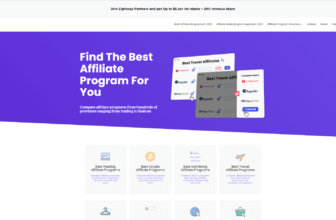Glossary of Affiliate Terms
Pricing Models
The biggest question on everyone’s mind is ‘how do I get paid’? There are only three methods within the affiliate world. Those are Cost per Acquisition (CPA), Revenue Share (Rev Share), and Hybrid.
What is CPA?
A CPA payment means the company will pay a flat rate for every person you bring onto the platform (they must be a new customer of course). It’s less common for gambling companies (see Rev Share) and more for the trading platforms like Trading 212, Plus500, e-toro, etc. It’s all about scale for these lot, the chances of netting a whale in the gambling sector are like a needle in a haystack (insert data on gambling users). Whereas people who sign up to trading sites are usually more financially savvy and will spend more in the long run. Therefore, it makes sense to offer a much higher flat referral fee, more than you’d find in almost any other industry. Trading 212 offers up to $1000 if you meet their referral requirements.
Here’s the catch (there’s always a catch). Typically, companies will only pay-out once the player has made a minimum payment and/or traded/bet a certain amount, (sometimes called a rake). The issue is that you can miss out on a signup payment if they don’t meet the requirement, especially if the minimum criteria for referral payment is higher than the minimum deposit. Take Trading 212 for example, they offer $300 CPA however, new customers must put at least $100 on the site. The problem is you can create an account with a minimum of $1 which leaves you totally out of luck if they decide to do that.
Some companies offer an accumulation bonus, which means the CPA increases the more people you bring on. As discussed in our article called Direct vs Network, you may find that some companies offer better CPA so make sure you do your research before you sign up.
Are you in it for the long run? Then maybe revenue share is the way to go. This payment method is typically offered by gambling companies because they want to encourage long-lasting, high paying relationships. If you net yourself a couple of whales then this could be a seriously lucrative option for you. Here’s how it works, you will make a percent of the revenue that has been bet/traded by the new player you bring on over the lifetime of the account. These shares range from 10% to 70%. It will typically increase for a couple of conditions. Firstly, based on the number of new players you bring on per month. Or the amount that the combined players spend. Let’s take a look at Gala Bingo who operates through GVC. You’ll receive 25% for the first 25 new players a month you bring on. This goes up to a maximum of 35%pm if you bring on 300+ players. News flash, that’s a lot of players. Most people will be working in the 25% mark which might not seem much to start with, but the aim of the game with revenue share is time + signups = money. For example, if you netted 10 people in month 1 who each spent £100 you’d make £25, not much. However, after a year you’re up to 120 people who are collectively spending £1200pm which makes you £300pm. Hopefully, you’ll be more successful than this and you can see how easily it accumulates. Let’s go for an extreme example! If you were bringing on 300 players a month (all betting £100pm) by the end of the year you’d have 3600 players betting £36,000pm making you a cool £12,600 per month. I don’t need to tell you what that would look like ten years from now, but it involves sandy beaches and private yachts.
The downside for revenue share is that you’re not getting cash straight away (unless you get lucky). So it takes quite a while to build a portfolio of players. These players can just as easily stop using the platform as well so you’re going to need to be constantly updating your pool of people.
Hybrid
These types of payment methods are usually available, even if they are not advertised. If you poke about the T&C’s or speak to your dedicated account manager (if you have one) they might be willing to set this up but we can’t promise anything. Essentially a hybrid account would pay both CPA and revenue share. This would need to be negotiated with the company so every person will have something different. All we can say is that it seems like a pretty good option if you want to make some upfront cash but would like to move into revenue share later down the line. The only other way this is discussed is through networks with large brand portfolios, all of whom offer different payment methods so by receiving CPA and Rev-Share you’d be getting a blended/hybrid option. If the company only offers one payment method then it’s unlikely they’ll offer a hybrid option.
- A Full Guide to The Adidas Affiliate Program - 23 July 2024
- Louis Vuitton Affiliate Program Alternatives: 8 High-End Fashion Affiliate Programs - 16 July 2024
- Discover the Power of MioMedia’s Affiliate Program - 16 July 2024








